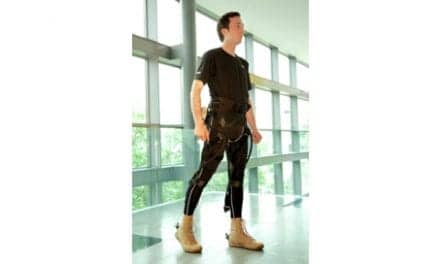Playing virtual reality games could be as effective as adding extra physical therapy sessions to a stroke patient’s rehab regimen, according to researchers.
“It is not a question of choosing one thing over the other, rather of having different training alternatives to provide variation,” says Iris Brunner, author of a study, published recently in Neurology, that explored a variety of medical uses for virtual reality.
“Virtual reality cannot replace physical therapy. But it can be experienced as a game, motivating patients to do an extra treatment session,” adds Brunner, associate professor with the University of Aarhus and Hammel Neurocenter, in Denmark.
Brunner and her team’s study included 120 stroke patients with mild to severe hand weakness, all of whom were randomly assigned to add 16 hour-long therapy sessions to their routine rehabilitation over a month. One group performed physical therapy, while the other group played a virtual reality game called YouGrabber, notes a media release from HealthDay.
In the game, Brunner explains, “the patients wear gloves with sensors, and their movements are tracked by an infrared camera and transferred to a virtual arm on screen.”
“In different scenarios, they can grasp objects that come toward them or pick carrots. In other games, patients steer a plane or a car with their movement. The therapist chooses the movements to be trained and the level of difficulty.”
Fifty patients in the physical therapy group and 52 in the virtual reality group completed the study and were evaluated after 3 months.
The researchers found no difference between the two groups with regard to the improvement in their hand and arm function.
“Patients who started out with moderately to mildly impaired arm and hand motor function achieved, on average, a level of good motor function,” Brunner states, while those with severe weakness were able to use their arms to make movements.
Patients with severe hand weakness appreciated how even small movements translated to the virtual arms on screen, she adds. And even the older patients liked the virtual reality game, she notes, possibly because the graphics are simpler than those in commercial video games.
Brunner concludes by noting that larger studies are needed to understand the potential value of virtual reality as a stroke recovery treatment.
[Source: HealthDay]




